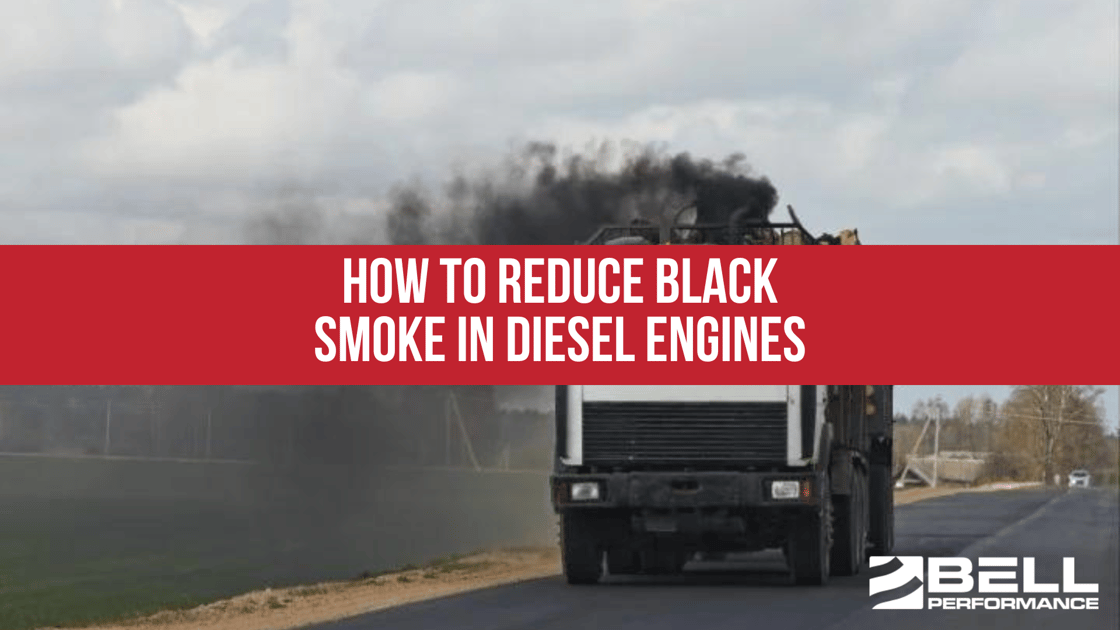Cold weather engine problems for diesel
New advances make fuel cold flow treatments even more essential With common rail diesel engines becoming the norm, engine manufacturers have been...

Diesel engines gained a reputation over the decades of the 20th century for being dirty and making lots of black smoke. That’s one of the dominant images that people have – a diesel rig going down the highway with black smoke belching from the stacks. In the 60s and 70s and 80s, that was pretty much accepted as normal. And all that is a shame because the diesel engine design is a more efficient and better engine than a gasoline-powered engine.
Today's advanced diesel engines are, no joke, more than 99% cleaner than they were just 25 years ago. Some of this comes from required emissions systems on the engines, but not all of it. The newer common-rail diesel engines are a more advanced design and are a big step up from the old diesel engines, enabling huge gains in horsepower and performance without the need to see lots of the old black smoke you used to see with them.
Since diesel engines aren't supposed to make black smoke, the corollary to this is that if you see your diesel making black smoke, that’s an indication that something needs to be fixed. Not only does it make you look bad, it’s bad for the environment and it will end up costing you more because black smoke means lower fuel mileage and more $$ out of your pocket. So, let's explore how to reduce black smoke in diesel engines by looking at what causes it.
Black smoke is partially burned fuel. An engine that’s running properly will burn all of the diesel fuel completely, making CO2 and water. So black smoke means something is causing the fuel to not burn completely. Air is a critical element of the combustion process; the right amount of air is needed to completely burn the fuel. Not enough air means incomplete fuel combustion (i.e. black smoke).
What can cause this restricted air condition? Since it has to do with not enough oxygen, a likely cause could be a dirty or restricted air cleaner system.
Large diesels pulling heavy loads will often puff black smoke when they are getting ready to accelerate from a stop. These large diesels have huge turbochargers that take a lot of time and a lot of fuel to “spool up”. When they are waiting to get rolling, they will “roll coal” before the light turns green, trying to get the turbocharger up to speed before they get moving. This adds a lot of fuel to an engine that’s only turning at low RPMs. Puffs of black smoke can result.
This condition only really happens with older trucks and is a design problem. There’s not much that can be done with that, apart from maybe adding a combustion catalyst to the fuel to improve the amount of that diesel burned at those low RPMs.
A mechanical issue that disrupts the balance between the right amount of fuel and the right amount of air being burned is going to produce black smoke. It could be as simple as adjusting the injector timing or checking the EGR system to make sure the EGR valve doesn’t need to be replaced.
If it’s not something simple like that, you’re looking at a mechanical problem. The valve clearances may be wrong. Or the injectors may need to be looked at. Fuel injectors are the most important element to an optimally running diesel engine. If they’re worn or plugged, you won’t get the best atomization of the fuel, which is what the engine relies on for its best performance.
Any engine runs at its absolute peak when it is new. Over time, the engine conditions change for the worse and this includes accumulations of combustion products in critical areas like injectors and combustion chambers. And these interfere with the best functioning.
Diesel engines are especially prone to this because a) they run for such a long time and b) because diesel fuel doesn’t come from the refinery with any special detergent packages already added.
The fix for this is to add a detergent additive to your diesel fuel regularly. A multifunctional treatment like Dee-Zol will clean out the deposits, reduce the amount of fuel burned incompletely, and can even extend the life of your DPF (because less soot is being produced at any one time).
New advances make fuel cold flow treatments even more essential With common rail diesel engines becoming the norm, engine manufacturers have been...
Carbon buildup in diesel engines is a prime cause of the black smoke that diesel engines have a reputation for generating. Excessive idling by diesel...
You have a diesel engine and it just doesn’t seem to be running right. Maybe it’s a little rough. It could be noisier than usual. It doesn’t seem to...